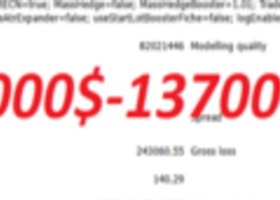How US Politics will Impact FX – Deutsche Bank
Alan Ruskin, Macro strategist at Deutsche Bank, suggests that the
channels through which the coming election will influence the USD are
complex and sometimes contradictory - which will probably mute the
response to some degree.
Key Quotes
“Assuming Trump and Clinton are the candidates, below are some broad FX considerations:
1. Fed policy:
Given Trump’s comments, Yellen’s term will not be extended beyond
January 2018 under a Trump Presidency. In any event, Yellen may choose
to leave after her term ends under a Clinton Presidency, so some change
in approach is possible regardless of who wins. Given Yellen is regarded
as on the dovish end of the policy spectrum, this consideration could
play USD positive, but it is too soon to be a major factor.
2. Fiscal policy:
On fiscal policy, there is a significant probability of some fiscal
stimulus early into the new President’s term, whoever is President, even
with a divisive Congressional backdrop.
3. Trade:
These stresses have predictable FX consequences in some areas - the MXN
is very vulnerable – but are less predictable in terms of impact for
other currencies, including for EM Asia and CNY. EM Asia will be subject
to negative trade concerns, but particularly for those countries that
are intervening to stop appreciation they will be under more pressure to
let their currencies appreciate.
4. Key appointments:
Who Trump and Clinton lean towards as Treasury Secretary is very
important. The unspoken flip side of comments that countries are
manipulating their currencies weaker, is that the USD is too strong. The
last time the US went down the path of using the exchange rate as a
trade tool was with Treasury Secretary Lloyd Bentsen in the first couple
of years of the Bill Clinton administration - a period when the US was
constantly talking USD/JPY lower. Any sign that we are going down that
path could put the USD under some pressure versus a few select
currencies, including the yen. Trump would further close the exchange
rate as one key channel through which unorthodox policy works,
potentially compounding concerns about unorthodox policy efficacy, with
negative risk implications.
5. Other: However,
even here pre-election USD negative implications of the trade
discussion, will be partly offset by the USD positive post-election
thinking on the monetary/fiscal mix, and other USD positive micro issues
like a 2005 HIA equivalent repatriation of US corporate tax holdings
from abroad (even if most these assets are in USD already).
Considerations of a possibly more ‘business friendly’ administration
could also be an important USD positive, but again as a 2017 theme.
6. Conclusions:
As the election debate heats up, this should play EMFX and commodity
currency negative versus G3. To the extent that US politics is seen
leading to a rise in global uncertainties, this should be mildly USD
negative versus the JPY, CHF and EUR into the election, but the
fiscal-monetary policy mix thereafter could encourage the resumption of
the stronger USD theme in 2017. The wild-card in the longer-term 2017
calculus for G3, is the extent to which trade negotiations roil China’s
markets, which would add negative pressure to EM and commodity
currencies, while the EUR and JPY would likely hold their own versus the
USD.
![]()



